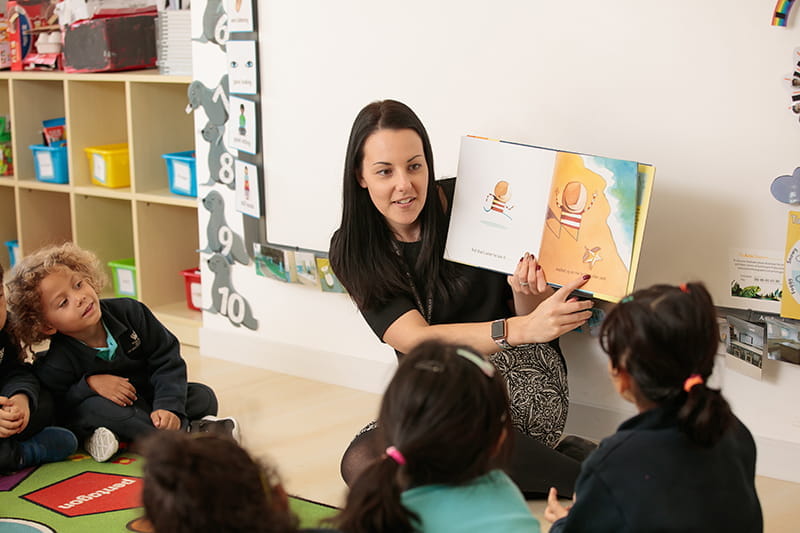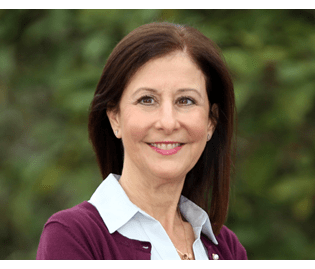Join Our Baby Group
Our baby group celebrates the joys of play and early learning, bringing parents and their little ones together in a warm and welcoming community. Join us today!

‘Personalised learning’ is just one example of a term discussed frequently in schools but often with very different ideas and meanings. In my 30+ years as an educator, I have found that some parents have different definitions of personalised learning, while others may not know be very familiar with the concept or the concrete benefits it brings to students at school!
For some it means using adaptive technology that adjusts for students’ ability; for others, it means an individualised curriculum plan for each student in the classroom. Those aren’t necessarily incorrect, but they perhaps put too much focus on separating the student from their peers. They also don’t take into consideration all the ways in which students learn or are unique.
For me, personalised learning begins with teachers getting to know each student — as a person and as a learner — and helping them discover what works best for them. I think understanding each individual ensures the school can better tailor experiences and maximise opportunities for students.
Knowing individual students well allows teachers and schools to offer collaborative and social learning opportunities that are specifically chosen to enhance learning, and this type of learning is at the heart of a personalised classroom experience.
When my children were in school, my greatest desire as a parent was for them to be known and valued for their unique selves — their skills, abilities, and preferences — and to understand areas where they faced challenges. I wanted to know how their strengths could be used and how the areas of challenge could be reduced. And I know most parents want that very same thing!
For the rest of this article, I’ll explain a bit more about how personalised learning benefits your child, and how you can get involved to maximise their success at school.
Great teachers practice personalised learning all the time and in a lot of ways. First, they invest time to get to know their students’ strengths, passions, and areas of opportunity through individual discussions, observation, assessment, academic history, and conversations with parents and former teachers.
They create environments where students feel they belong, where they can take risks, and can ask when they need more support. This is essential for personalised learning and leads to greater student engagement.
Some examples that I often see in schools are when teachers:
Technology is an invaluable resource for a teacher. Tech tools can strengthen a personalised experience by capturing individual learner data so teachers and students alike can reflect on student performance and further customise lessons to their individual needs.
We know that formative assessment is critical for understanding where individual students are in their educational journey. This doesn’t have to mean a traditional end-of-unit test — it can be as simple as gathering a snapshot of what students have understood in a lesson.
In many of our schools, teachers are using different types of technology to get this “snapshot” of how students are feeling or gauge their understanding of a given topic. Using this data, teachers can better understand how your child is doing and can then ask: what are they missing? What do I need to ask the student or what extra support do they need?
I believe that education is a partnership between the parent, the teacher, and the student. All three should be involved and responsible for ensuring a positive and productive relationship.
As a parent, you bring a unique perspective because you see your children at home and in different settings. You are, and will, always be your child’s first teacher.
That’s why parent conferences, curriculum meetings and other school-sponsored events are vital. These allow you to share your perspectives with your child’s teacher and find out how your child is performing in the classroom. Together you can determine the best ways to support your child at home and at school.
Great teachers, like the ones we have at our schools, will welcome your involvement and see that relationship as key.
As teachers and parents work more closely together, one great way to personalise learning is to set individual goals for students around content or skills that you can support at home.
For example, one of our six Nord Anglia Learner Ambitions is to help students to develop curiosity. One way that you can support this as a parent at home is by helping your child to ask ‘curious questions’ – this could be while reading together, when on long car rides, or at the dinner table.
Personalised learning provides opportunities for students to learn more about themselves as learners. This gives them the chance to practice different approaches and strategies, reflect on their achievements and understand how to navigate challenges, ultimately preparing them for success at university and life beyond school.
What we know about learning is when our students are engaged and have a voice — and when learning is tailored to their strengths and areas of opportunity — they do better. And we see that played out repeatedly in our classrooms all over the world.
Dr Elise Ecoff is the Group Education Director for Nord Anglia Education.
